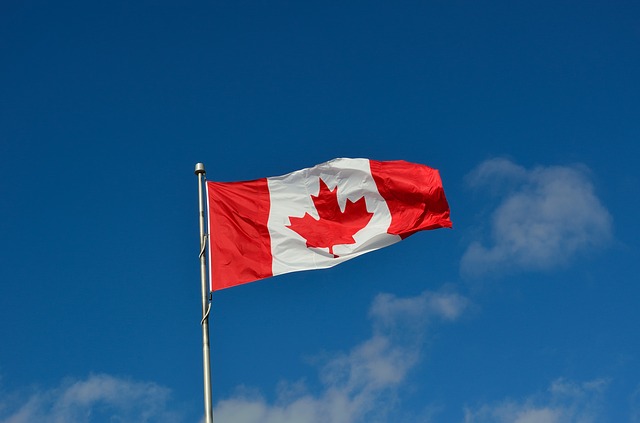Canadian Casino Revenue in 2021: Calm Before the Storm, or a Sign of Future Decline?

Though it’s often overshadowed by its neighbors to the south, the Canadian gambling industry is one of the largest in the world, with conservative estimates pegging the value of the market at somewhere north of $15 billion annually — good enough to make it one of the top 10 gambling countries worldwide.[1]
Like every other market in the world, however, Canada’s gambling industry was rocked by the COVID-19 pandemic and the lockdowns that came with it. The interruption to the in-person gambling trade has thrown some of the most recent statistics into disarray, but the figures still indicate an industry that was somewhat in flux — but one whose best days may yet be in front of it.
The Current State of the Canadian Gambling Industry
In order to put the health of the Canadian gambling market in proper perspective, one must first reconcile two radically different snapshots: the state of the industry in the 5 years leading up to the COVID-19 outbreak, and the year-plus since the pandemic has changed virtually everything about the world we live in.
If one were just to look at the year or so since the virus has left the world (and much of Canada) shut down, you would be forgiven for thinking that the Canadian gambling industry is on life support.
Brick-and-mortar revenues plummeted, which was due almost entirely to the fact that they were forbidden from operating beginning in the middle of March 2020.[2] As of the time of this report, not all of Canada’s land-based casinos had been reopened, which will undoubtedly put a damper on 2021’s casino revenue as well.
What’s worse, there are some indications that many of the establishments that shuttered their doors due to the pandemic may never be able to reopen them again.[3] If these casinos fail to get back on their feet, then the industry as a whole will suffer from the loss of the revenue they’d otherwise provide.
Some operators, such as Great Canadian Gaming, reported losses as significant as $70 million since the lockdowns were initiated.[4] Great Canadian Gaming is a giant of the industry, and odds are that they’ll be able to recover fully in time. However, smaller establishments are less likely to be able to suffer such crippling losses while still being able to bounce back.
While the pandemic has clearly devastated land-based establishments, it’s not clear that the virus interrupted anything resembling a meteoric rise for the industry. In the 9 years preceding the pandemic, industry revenue stayed relatively constant, fluctuating between $14 and $15 billion per year (with a peak of $15.63 billion in 2016).[5]
Of course, COVID-19 didn’t eliminate the urge to gamble among the population — if anything, it merely redirected it. The widespread casino closures have forced wager-happy Canadians to look elsewhere to find their action, and this may permanently change the face of the gambling industry moving forward.
Impact of the Emerging Online Gambling Market
With the ability to gamble in-person severely limited or completely restricted for most Canadians, it’s no surprise that many gamblers looked to the internet to get their fix.
Online gambling is legal in Canada, and while it’s been popular since its inception, the pandemic caused participation to skyrocket. By some estimates, participation in online gaming increased by 77% since the start of the pandemic.[6]
Much of this participation is due to gamblers who previously spent their time alternating between land-based and online casinos having to focus their efforts entirely on the internet; however, a sizable portion of the increase is also due to dedicated brick-and-mortar gamblers testing the online waters for the first time.
The exact number of first-time internet gamblers in Canada is unknown, but some worldwide surveys indicate that as many as one-third of all online punters during the pandemic were new to the platform.[6]
There were also a sizable number of players who had previously tried online gambling but abandoned it due to preferring in-person wagering; many of these returned to the internet when their other wagering options became unavailable to them.
One sizable caveat exists, however: due to the fact that the legality of online gambling remains somewhat murky in the USA, some of the gamblers taking advantage of Canadian internet casinos may in fact be Americans invading the player-friendly northern market.
What Games Do Canadians Play the Most?
The pandemic may have changed how Canadians gambled, but it had less of an effect on what games they played. By and large, the games that were popular before COVID-19 remained popular when the virus was in full swing.
The most popular form of gambling in the country remained lottery tickets and scratch cards; however, even these options saw a downturn in revenue as a result of pandemic-related issues. Lotto-Quebec went so far as to suspend in-person ticket sales during the pandemic, forcing players to buy their entries online (further contributing to the rise of internet gaming).[7]
There were also fears that winners would be unable to collect their prize money due to the virus, forcing lottery commissions to extend their claims periods.[8]
After lotteries, casino games continued to be the most popular game among Canadian players, with blackjack and slots leading the way; the former was the most popular game for male players, while more females enjoyed the latter (although male slot players didn’t lag far behind).
Poker is also quite popular, although it’s difficult to say just how much growth it’s experienced since the start of the pandemic. It’s certainly skyrocketing in the USA, and given that many US players use VPNs to play on international sites, it’s likely that American gamblers are contributing to the Canadian poker industry as well.[9]
Bringing up the rear in terms of popularity are games like bingo, horse racing, and sports betting. The revenue from these games plummeted during the pandemic, due in large part to the cancellation of events that bettors would otherwise have been able to wager on.
However, the numbers surrounding sports betting are far more interesting than those concerning the other two — for a variety of reasons.
How Will New Sports Betting Laws Affect the Canadian Gambling Market?
While sports betting has never been a huge driver of revenue in the Canadian market, that’s due in large part to restrictive laws that prohibit betting on single games. Until recently, Canadian sports bettors could only wager using parlays, which are largely unpopular among savvy gamblers due to their long odds.
That’s all poised to change, due to the passage of C-218, a bill designed to legalize single-game betting in all provinces.[10] While it’s not expected to take effect for some time, many experts predict that the new bill will revitalize the sports betting industry.
It’s important to realize that the bill doesn’t just allow players to wager on the outcome of a single contest; it also opens the door to daily fantasy sports betting, and companies like DraftKings are expected to aggressively target the Canadian market.
Despite its relatively small population, Canada is an attractive market to sports betting companies. All four major American sports leagues (the NBA, NFL, NHL, and MLB) are popular in the country, as are the Canadian Football League and various soccer leagues. It’s conservatively estimated that sports betting in Canada could generate upwards of $5 billion in annual revenue.[11]
All of this is purely speculative, of course. Until the bill is fully implemented, any estimates about the potential size of the Canadian sports betting populace are just that — estimates.
The Demographics of the Canadian Gambling Industry
Both men and women enjoy gambling in nearly equal amounts in Canada, as men make up 57% of the total number of bettors.[12] Regardless of gender, the bulk of all wagering comes from players in the 35 – 54 age range.[13]
Interestingly enough, women are more likely to wager on a mobile device than are men, although that may reflect the fact that women are more likely to favor mobile-friendly games like slots and bingo, whereas men are more likely to play games like poker that don’t translate as well to handheld wagering.
Another possibility, however, is that more women may be getting introduced to real-money gambling from social media sites like Facebook. Many women start by playing free versions of games like bingo before transitioning to real-money casino sites, and many of those sites are capitalizing on this by investing heavily in social media advertising.[14]
Overall, roughly 60% of all Canadians gamble in some form or another; this includes everything from betting on horses to buying a lottery ticket.[15] Those in the 18 – 34 age bracket are the least likely to gamble, a figure which may simply be attributed to the lack of disposable income those players have, but it may also represent a troubling long-term trend for the industry.
The amount of money wagered by men and women varies, but only slightly. Women are more likely to spend between $1 and $20 per month on gambling, while men are more likely to spend between $20 and $100. Both sexes are equally likely to spend $100+ on a monthly basis, however.
It should be noted, though, that sports betting is a niche that skews both younger and male, with men representing 69% of all sports bettors, of which 45% are between the ages of 23-34.[16] Fantasy sports betting is overwhelmingly popular among young men as well. All of this means that the passage of C-218 could dramatically skew the overall demographics in the years to come.
More Problematic Gambling on the Horizon?
The Canadian gambling industry — and, in particular, the internet gambling industry — seems poised to explode in the next 5 – 10 years, but the forecast isn’t completely rosy. With such an increase in popularity comes certain drawbacks, not least of which is a potential spike in problem gambling.
The data from gamblers who were active during COVID-19 is grim. Players who gambled online during the pandemic were more likely to lose some or all of their income; players who suffered from depression or abused drugs and alcohol were also more likely to exhibit compulsive gambling behaviors.[17]
However, this may not represent a causal relationship. For example, the link between depression and problem gambling is well-established, and the pandemic and its ensuing lockdowns are causing a surge in depression.[18][19] Blaming gambling itself for the problematic behavior of certain players during a worldwide pandemic may be reversing the causal order of things.
Also, while there have been myriad studies asserting that online gambling is more likely to cause disordered gambling behavior, that relationship appears to vanish when researchers account for potentially-omitted variables.[20] It seems unlikely, if online gambling continues to grow in popularity, that there should be a corresponding spike in problematic wagering.
Then again, sports bettors have dramatically higher levels of problematic gambling behavior than those who wager on other games.[21] Given this, the passage of C-218 would appear to bode poorly for the mental health of Canadian gamblers.
What’s the verdict, then? Will problematic gambling skyrocket in Canada once single-game betting is allowed, or will this all be much ado about nothing? It’s too soon to tell, but the situation definitely bears close monitoring in the years to come.
What the Gambling Industry Funds in Canada
As in many other developed countries, legalized gambling is big business in Canada. Even ignoring the massive amount of money wagered both online and in person, the gaming industry contributes massively to the overall Canadian economy.
According to government statistics, the gaming industry is responsible for over 182,000 full-time jobs and $9.2 billion in annual tax revenue; this isn’t including the $1 billion+ that’s spent on food and drinks in gambling establishments each year.[22] It also contributes north of $120 million per year to fund problem gambling treatment, prevention, and awareness initiatives.
(It’s worth questioning just how committed the industry is to helping those gamblers, however. Some estimates peg the amount of revenue that casinos derive from problematic gamblers at around a quarter of their total income, so helping those players could put a serious dent in the house’s bottom line.)[23]
The lottery pays out nearly $500 million in commissions each year; that money helps to keep countless gas stations, convenience stores, and grocery stores in business.[24] VLT siteholder commissions also contribute $532 million to over 5,300 bars, restaurants, and hotels in various parts of the country, particularly in rural areas.[24]
An Industry on the Rise — or One That Has Already Peaked?
The COVID-19 pandemic has had a devastating effect on the land-based casino industry in Canada, and while online casinos have picked up much of the slack, the future remains somewhat opaque.
The passage of C-218, which legalizes single-game sports betting, would seem to bode well for future expansion. However, the rest of the industry had plateaued for several years before the pandemic hit, so it remains to be seen if there remains an untapped market for casinos and card rooms to draw upon for future expansion.
Even if massive growth proves to be elusive, there is enough of an entrenched demand for gambling to make the Canadian market a formidable one in the years to come. That’s good news for both online and brick-and-mortar casinos — as well as the various ancillary businesses that depend on them for their livelihoods.
“Industry Data – Canadian Gaming Association.” [Online]. Available: http://canadiangaming.ca/industry-data/. [Accessed: 02-Sep-2021].
P. Czegledy, “CANADIAN LAND-BASED GAMBLING IN THE TIME OF COVID-19,” https://home.liebertpub.com/glr2, vol. 24, no. 8, pp. 555–558, Oct. 2020.
“Gambling in Canada – Industry Data, Trends, Stats | IBISWorld.” [Online]. Available: https://www.ibisworld.com/canada/market-research-reports/gambling-industry/. [Accessed: 02-Sep-2021].
“Great Canadian Gaming Announces First Quarter 2021 Results.” [Online]. Available: https://www.newswire.ca/news-releases/great-canadian-gaming-announces-first-quarter-2021-results-832490557.html. [Accessed: 02-Sep-2021].
“• Gambling sector market size Canada 2021 | Statista.” [Online]. Available: https://www.statista.com/statistics/1186307/gambling-industry-market-size-canada/. [Accessed: 02-Sep-2021].
“SUSPENSION OF OFFLINE GAMBLING ACTIVITIES: BAD LUCK FOR PUBLIC HEALTH?”
“Canada: COVID-19 Impact on Scratcher Sales – La Fleur’s Lottery World.” [Online]. Available: https://lafleurs.com/magazine-feature/magazine-secondary-feature/2020/08/10/canada-covid-19-impact-on-scratcher-sales/. [Accessed: 02-Sep-2021].
“COVID-19: Lotto winners struggling to cash in tickets given six more months to claim their prize | CTV News.” [Online]. Available: https://calgary.ctvnews.ca/western-canada-lottery-corporation-extends-claim-periods-for-winning-tickets-1.4886525. [Accessed: 02-Sep-2021].
“Online Gambling Platforms Gained Larger User Base With.” [Online]. Available: https://www.globenewswire.com/news-release/2020/10/22/2112777/0/en/Online-Gambling-Platforms-Gained-Larger-User-Base-With-Pandemic-As-A-Driver-Of-The-Global-Online-Gaming-Market-2020.html. [Accessed: 02-Sep-2021].
“Senate Passes Bill C-218 Legalizing Single-Event Sports Betting in Canada | Blake, Cassels & Graydon LLP – JDSupra.” [Online]. Available: https://www.jdsupra.com/legalnews/senate-passes-bill-c-218-legalizing-1574716/. [Accessed: 02-Sep-2021].
“Single-Event Sports Wagers Set to Launch in Canada – GamblingNews.” [Online]. Available: https://www.gamblingnews.com/news/single-event-sports-wagers-set-to-launch-in-canada/. [Accessed: 02-Sep-2021].
“Gambling industry in Canada – Statistics & Facts – Affiliate Insider.” [Online]. Available: https://affiliateinsider.com/affiliate/gambling-industry-in-canada-statistics-facts/. [Accessed: 02-Sep-2021].
“Six in Ten (60%) Canadians Partake in Gambling | Ipsos.” [Online]. Available: https://www.ipsos.com/en-ca/six-ten-60-canadians-partake-gambling. [Accessed: 02-Sep-2021].
S. McCarthy et al., “Women’s gambling behaviour, product preferences, and perceptions of product harm: differences by age and gambling risk status,” Harm Reduct. J. 2018 151, vol. 15, no. 1, pp. 1–12, Apr. 2018.
“How Much Money do Canadians Spend on Gambling? – Baron Mag.” [Online]. Available: https://baronmag.ca/2019/09/how-much-money-do-canadians-spend-on-gambling/. [Accessed: 02-Sep-2021].
“The Emergence Of Sports Betting.” [Online]. Available: https://www.provokemedia.com/latest/article/the-emergence-of-sports-betting. [Accessed: 02-Sep-2021].
A. Price, “Online Gambling in the Midst of COVID-19: A Nexus of Mental Health Concerns, Substance Use and Financial Stress,” Int. J. Ment. Health Addict., 2020.
D. Clarke, “Impulsivity as a mediator in the relationship between depression and problem gambling,” Pers. Individ. Dif., vol. 40, no. 1, pp. 5–15, Jan. 2006.
A. Abbott, “COVID’s mental-health toll: how scientists are tracking a surge in depression,” Nature, vol. 590, no. 7845, pp. 194–195, Feb. 2021.
K. S. Philander and T. L. MacKay, “Online gambling participation and problem gambling severity: Is there a causal relationship?,” Int. Gambl. Stud., vol. 14, no. 2, pp. 214–227, May 2014.
“NCPG Releases Comprehensive Study of Public Attitudes About Gambling – National Council on Problem GamblingNational Council on Problem Gambling.” [Online]. Available: https://www.ncpgambling.org/ncpg-releases-comprehensive-study-of-public-attitudes-about-gambling/. [Accessed: 02-Sep-2021].
“THE NATIONAL ECONOMIC BENEFITS OF THE CANADIAN GAMING INDUSTRY KEY FINDINGS REPORT.”
R. J. Williams, “The Proportion of Gaming Revenue Derived from Problem Gamblers: Examining the Issues in a Canadian Context,” 2004.
Canada Gaming Association, “Economic Impact of the Canadian Gaming Industry,” 2011.
Latest articles

Latest Americas Cardroom Promo...

Best Sports Betting Sites in N...

Shazam Casino Review – Shazam ...












